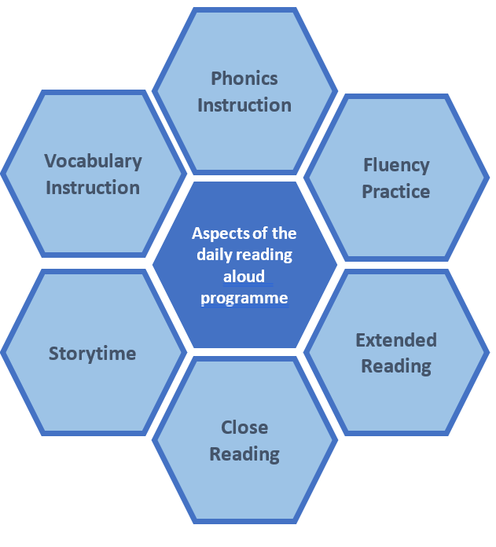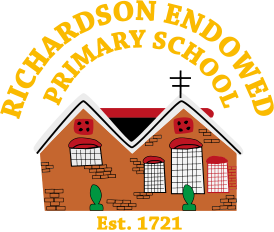English
Intent
At Richardson Endowed Primary School, we believe that a quality English curriculum will develop our pupils’ love of reading, writing and discussion. We believe that through communication which includes, speaking and listening, reading and writing pupils develop their power of imagination, inventiveness and awareness of the world.
It is our intent that the children who enter our Early Years develop physically, verbally, cognitively and emotionally whilst embedding a positive attitude to school and learning.
Our intention is to support pupils to become lifelong readers who have enquiring
minds and are confident, independent learners.
‘Once you learn to read, you will be forever free’ - Frederick Douglass
By helping pupils to gain a secure understanding of English, we are empowering our pupils to communicate effectively and imaginatively, allowing them to engage with others in school and the world in which they live in.
Key Learning
| Appreciation | Analysis | Creation | Evaluation | |
| Speaking and Listening |
| What makes a good speaker and listener?
|
| Reflecting on your performance and that of others. |
| Reading and Writing |
|
|
|
|
In Early Years, English is taught through the prime areas of Communication and Language (listening and attention, understanding and language and speaking) and the specific areas of Literacy (comprehension word reading and writing). The specific area of Expressive Arts and Design is also taught and the prime area of Physical Development (fine and gross motor). We want the children to be able to listen, respond and comment on what they have heard using an increasing range of vocabulary. Children will access stories, songs, non-fiction, rhymes and poetry. We want them to be able to express their ideas and hold a two-way conversation with adults and peers. Children will be able to retell stories and develop their own narratives. Children will make use of props and materials when role-playing characters in narratives and stories. Children will say a sound for each letter in the alphabet and at least 10 digraphs and will consistently use their phonic knowledge to read aloud simple sentences and common words in books that are in line with their phonic knowledge. We want the children to be able to write correctly formed, recognisable letters, phonetically spell some words and write simple phrases and sentences.
PHONICS AND READING

At Richardson Endowed Primary School, we value reading as an essential life skill and are dedicated to enabling our pupils to become lifelong readers. We believe that all of our children can become fluent readers and our aim for all of our children is to leave school reading confidently and fluently, with understanding and expression. It is our intention to provide consistent, high-quality texts, genres and authors.
In EYFS and Key Stage 1, we teach reading through Little Wandle Letters and Sounds revisited, a DfE validated systematic and synthetic phonics programme. We start teaching phonics in Class R and follow the Letters and Sounds Revised progression, which ensures children build on their growing knowledge of the alphabetic code, mastering phonics to read (and spell) as they move through school.
Children at Richardson Endowed Primary School will access high quality, daily phonics teaching, which will equip them with the skills to become successful and confident readers. They will also take part in three weekly group reading sessions, which focus on decoding words, prosody and comprehension. Through daily lessons, group reading, reading widely and often across the curriculum and being supported at home with reading (an expectation of a minimum of three times per week out of school), our children will develop raeding skills, independence, resilience and a 'can do' attitude when faced with unfamiliar words.
The regular and consistent approach to the teaching and learning of phonics in our school allows children to decode words more readily and this has a significant impact on their reading fluency.
Reading for pleasure is very important here at Richardson Endowed Primary School. As part of our 'reading diet' staff regularly share stories with children during a dedicated daily story time. Also, alongside the carefully matched phonics books, children are encouraged to select a library book every week to take home and share with parents.
The link below will take you to the 'Parents section' of the Little Wandle website. Here you will find resources which will help to support your child with saying their pure sounds and writing their letters. There are also some useful videos which will help you to feel more confident about supporting your child's reading at home.
Click here for the Little Wandle website
Open the document below for our full Reception and Year 1 phonics programme overview, which will help you to see what your child will learn and when:
Key Stage 2 Reading
In Key Stage 2, we deliver our reading lessons through the Embark Reading Diet.

